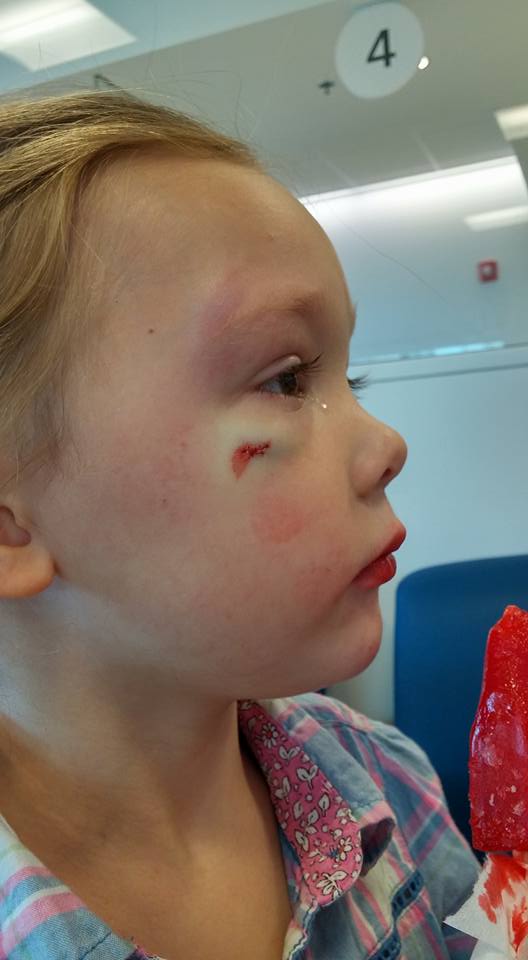“I bet he likes you.”Dear man at the registration desk at Children’s hospital, l’m positive that you didn’t think that…
Posted by Merritt Smith on Tuesday, October 6, 2015
A little four year old girl was apparently told by a hospital worker in Columbus, Ohio that the reason she’s getting stitches is because the little boy who punched her must like her. In a Facebook post, Merritt Smith, the little girl’s mother, described the scene, saying:
In that moment, hurt and in a new place, worried about perhaps getting a shot or stitches you were a person we needed to help us and your words of comfort conveyed a message that someone who likes you might hurt you. No.
Right off the bat: this isn’t to dogpile on the hospital worker. In fact, the hospital has already posted about how they’re working with Smith and the hospital worker to increase understanding of why a statement like that is so problematic. In her own post, Smith commented, “I want it to be understood that I value Nationwide Children’s Hospital as a tremendous asset and resource in our community.”
That’s not why this story is so sad.
What makes this story so sad is the idea that we’ve associated abuse with affection to the point that it’s something we pass on to kids. You know you’ve heard it before: “Oh, don’t mind him, he pulled your pigtails because he likes you.” Or, “He’s just doing that because he doesn’t know how to say he likes you.”
“Boys will be boys.”
Phrases and statements like these only serve to teach young girls that it’s okay for boys to hurt them, that it’s a good thing somehow. To the same effect, it teaches young boys that physical harm is a valid way to show affection, that it’s okay to hurt someone else because, hey, you’re doing it out of love. We need to stop teaching children that this is the way things are. This chain of excuses for abuse needs to stop with us.
Hopefully the takeaway from this story is that even though we may have the best of intentions (to create levity, to try to understand), we need to be aware of just what exactly we’re saying to each other, especially when we speak to children. It’s up to us to do better for ourselves, and we do that when we think critically about the things we say. These might seem like nitpicks to some people, but the effect our words have on other people is immeasurable.
(via BuzzFeed, image via Facebook)
—Please make note of The Mary Sue’s general comment policy.—
Do you follow The Mary Sue on Twitter, Facebook, Tumblr, Pinterest, & Google +?









Published: Oct 12, 2015 03:00 pm